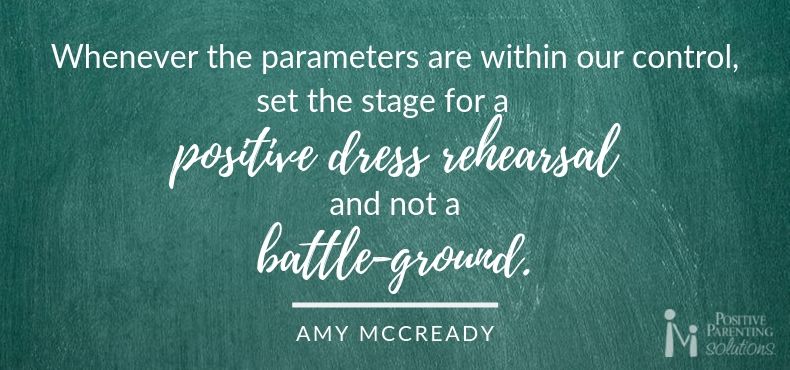7 Discipline Strategies More Effective Than Spanking

Sometimes you feel the need to shock her because she did something dangerous.
Maybe she tried to cross the road without looking both ways, or maybe she stepped too close to a ledge. You need to address it in a way that ensures it won’t happen again.
You don’t want to, but you believe that inflicting a little pain now could save her life in the future.
Sometimes you feel angry because he deliberately disobeyed you.
A week ago you told him never to throw rocks. Then last night he pitched a stone at a neighbor’s window, shattering it to pieces.
You really need to get his attention. He needs to understand the gravity of his actions.
Sometimes you can’t think of anything else that could possibly get through to your kids and make them realize how serious their actions and poor choices have been.
With fear, anger, and desperation as your guides, you can’t think of anything else but to spank them.
Maybe it works at first. It embarrasses and hurts your kids enough that they stop what they’re doing in that moment. Inevitably though, you feel remorse.
Did my spanking make a difference? Did my kids change their behavior because of my actions?
And before you even have time to ponder these questions, the incident soon repeats itself.
You’re left wondering, what’s the point of spanking if the vicious cycle never ends?
No matter where you fall on the spanking spectrum, I am not here to wag a finger or throw judgment your way. I know what it feels like to be at my wits’ end with no other tools to use except yelling or spanking.
But what I’ve learned, and what I’d love to share with you, is that there are more effective ways to discipline your child.
Here are 7 other tools you can use BEFORE you consider spanking as a discipline technique. From toddlers to teens, these positive parenting strategies provide long-term solutions to your parenting woes. And, as an added bonus, you won’t feel guilty using them!
7 Alternative Discipline Strategies to Spanking
1. Take Time for Training
Disciplining our children means training them to behave appropriately and holding them accountable with dignity and respect. This approach teaches your child how to make better choices in the future.
For example, when your young daughter is trying to cross the road, spend the first few times training her how to cross safely.
“When we reach the end of the sidewalk, you need to hold my hand. Then, you need to look both ways to see if any cars are coming. Once you’re holding my hand and we’ve looked both ways, then we can safely cross the road together.”
Don’t expect your child to remember the second time, or even the third time. Repeat the instructions and watch her closely until she’s been thoroughly trained and automatically knows what to do every time she reaches a street or crosswalk.
If she still makes a mistake and darts back into the street, try some of the following strategies.
2. Control the Environment
Whether or not your child routinely makes poor choices, another strategy to consider is to control the physical environment or the situation to remove potential triggers and set children up for success.
The same daughter with zero impulse control when it comes to crosswalks and cars could benefit from a safety strap, harness, or stroller. She may be too young to understand the dangers of oncoming traffic–even with sufficient training–so framing the environment to keep her protected would be essential.
It might also be unreasonable to expect your toddler to behave perfectly at a Michelin-star restaurant. Instead, research age-appropriate restaurants in advance that can accommodate the challenges of family dining (or simply manage your expectations at the fine-dining establishment).
Let’s say your pre-teen loves to fill up on junk food and candy when you aren’t looking. Come dinnertime, though, he’s not eating as much as he used to. Instead of quizzing him on whether or not he was sneaking snacks again, avoid buying them in the first place. You may have to sacrifice a bit of your own snacking pleasure, but removing the snacks from your home will eliminate any temptation and help ensure that your child eats more nutritious meals.
Sure, all kids need to learn appropriate behavior and self-control, sometimes through trial and error. The reality is that they will learn these mistakes outside of the home time and time again, without our presence or interference. We can always offer our guidance, but if we (even unknowingly) set them up for failure, we’re inviting ourselves into an unnecessary power struggle.
Whenever the parameters are within our control, set the stage for a positive dress rehearsal and not a battle-ground. By making this shift, you’ll help your child practice making good choices, and you won’t feel pressured to use spanking as a disciplinary tool.

3. Stay Calm
When our basic instinct is to shock our kids into submission, how can the opposite tactic actually work?
Consider the old adage, don’t fight fire with fire.
Staying calm even when–especially when–you reprimand previous behavior is a surprisingly powerful tool.
Don’t make the mistake of thinking this is taking the easy route or not harsh enough. Staying calm can be a tremendous challenge when you’re frustrated and trying to impart crucial information–and it’s worth it.
Kids will listen if you get down to their level and speak calmly and clearly. For small tykes, using simple words and sentences is best.
By remaining calm and absolving anger, you’ll automatically avoid an escalating power struggle. In this way, there’s a better chance your child will actually be listening to the information you share since they aren’t feeling the need to defend themselves.
If your kids are acting out, this is also a sign they need your love more than ever. Remaining calm and patient delivers that love in a more impactful way than spanking.
Lastly, unless it’s something dangerous, you can even ignore or maintain indifference towards certain behaviors altogether.
Behaviors like whining and backtalk are most often symptoms of your child’s underlying need to get your attention. In this case, giving them negative attention through spanking would be the worst solution because it would only make the behaviors continue. Instead, simply ignore the undesired behavior altogether.
4. Remove Your Child From the Situation
If you’re at a birthday party and your toddler starts screaming because the birthday girl got her piece of cake first (and it has more frosting), calmly take her and step away.
Even if you’re about to check out at Target with a heaping-full shopping cart, attack any full-tilt tantrum hurled your way by leaving everything and exiting the store (with your troublemaker in tow, of course).
Don’t just avoid spanking your child because you’re worried about how others will perceive you. Avoid spanking her because it isn’t a long-term solution and only escalates the power struggle between you both.
Once outside, or in the car, try to discuss what was unfortunate about her actions and turn it into a constructive teaching lesson.
5. Spend Quality Time with Your Kids
If your child is continually acting out because he wants attention, what better way to solve the problem than to give him that attention in a positive way?
Granting a misbehaving child with negative attention will only encourage his behavior.
Instead of spanking, try spending more one-on-one time with your kids. Daily and uninterrupted time with each child is the best way to combat attention-seeking behaviors.
Granting them this positive attention will help the attention-seeking misbehavior slowly decrease while simultaneously improving your relationship with one another. What could be better?
Pro Tip: To make the most out of this intentional time together, have your child choose the activity and ensure the cell phones are put away.
Note: For Positive Parenting Solutions members, revisit Session 1 to learn how to implement Mind, Body, and Soul Time effectively and ward off power struggles!
6. Problem-Solve Together
Let’s say your nine-year-old daughter, in a fit of defiance, threw your new iPhone into the water. $1,000, gone! The insolence!
You are beside yourself with rage. Instead of using spanking as a tool, take a step back (and a deep breath), and think of something that would hit even harder. Not in a way to cause humiliation and pain, but something better–something that will give her real motivation never to do it again.
Sit down with your daughter and let her know how her actions made you feel. “I felt frustrated when you threw my phone into the water. I’ve worked hard to earn enough money to purchase a phone and depend on it to stay connected with my friends and family.”
Now, for the kicker. Ask your daughter, “What do you think you could do to make this situation right?”
In the case of the iPhone, perhaps she’ll suggest that she should work by doing extra jobs around the house until the phone is paid off.
It would take forever, you think, but just imagine the lasting impact it could make. If she enjoys technology privileges, she might suggest she is no longer able to use her technology devices until the phone is paid off.
By working with your child to develop a reasonable consequence for her action, you reduce the chance for a power struggle because you already have buy-in. That’s when real change can occur.
Once again, don’t think that this is the easy way out. Enforcing consequences and developing a plan together can be incredibly difficult for parents.
It takes endurance and mental strength to follow through, especially because it can affect your lifestyle and things you may have been looking forward to. You can rest assured, however, that it’s going to work in the long run.
7. Consider Natural Consequences
Natural consequences are the natural result of an action that will play out without parental involvement.
Natural consequences aren’t suitable in dangerous situations. However, let’s say you warned your son that if he leaves his new battery-operated fire truck outside in the rain, he will destroy it. You’re tired of spending money on toys that he keeps leaving carelessly in the front yard.
This time, when you see him become distracted and leave the firetruck outside, you decide not to intervene.
You may be furious that he failed to listen to you yet again. However, instead of bringing it to his attention and spanking him, let his forgetfulness teach the lesson. It may feel like a waste of money to watch the rain shower destroy the fire truck, but once your son realizes his inaction resulted in the loss of his beloved toy (that you should not replace), the lesson will be invaluable. You can be certain he’ll remember to bring his toys inside in the future.
Final Thoughts
While we know some parents will still choose to spank, I encourage you (beg you!) to try these 7 strategies BEFORE you are pushed to that point.
Having shared my 37+ Positive Parenting Solutions tools with 75,000+ parents worldwide, I can say with certainty, these tools are more impactful and effective than spanking.
While it’s impossible to share ALL the strategies in one little article, I’d love for you to JOIN ME FOR A FREE ONLINE CLASS.
I’ll teach you the five steps to implementing fair and effective CONSEQUENCES that will get your kids to listen–no nagging, yelling, or reminding required.
If you don’t want to waste another moment on ineffective discipline strategies, take a leap of faith with me to stop spanking and never look back.
Your child’s confidence, happiness, and bottom will thank you.
Title Image: pixelheadphoto digitalskillet’s / Shutterstock https://www.shutterstock.com/photos
What You Should Do Next:
1. Get Quick Actionable TIPS delivered to your inbox
Sign up for my newsletter for parenting tips to help you create a happier home and become the parent you always wanted to be. Plus, when you subscribe, I'll also send you a copy of our strategy-packed guide 10 Tips for Better Behavior – Starting NOW!
2. Unlock the secrets to easier parenting in my FREE CLASS
Register for my free class called How to Get Kids to Listen, Without Nagging, Yelling or Losing Control. Classes run several times per week to accommodate your busy schedule.
3. Transform your family with the 7-Step Parenting Success System® Course
Join the hundreds of thousands of parents who have transformed their families with the 7-Step Parenting Success System® Course. Learn the tools you need to raise happy, respectful, responsible kids and create the family life you always dreamed of having.
About the Author






